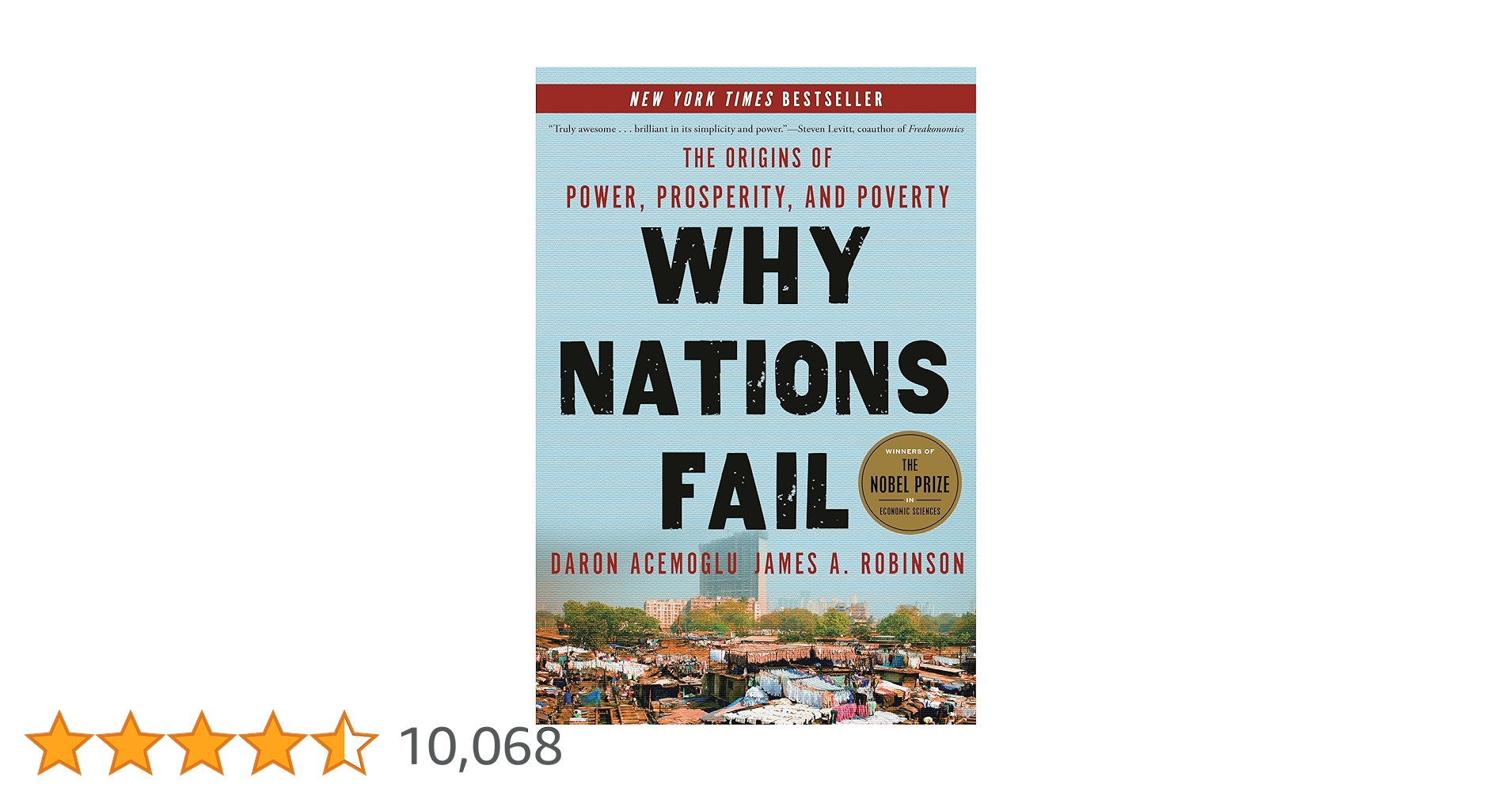読書中の洋書 Why Nations Fail(邦題:国家はなぜ衰退するのか)の書評記事を数回に分けて書いています。

今回は第11章の The Virtuous Circleとなります。
Inclusive Institutionsを実現する「好循環」は、既に達成された制度を保全するだけでなく、更にこれを発展させる作用を持ちます。
ただし、このような好循環は一直線に(良い方向に)進むのではなく、様々な紆余曲折を経て徐々に進行していきます。
【English】
Chapter 11 of Why Nations Fail, “Virtuous Circle,” explains how inclusive political and economic institutions create a cycle of sustained prosperity and further development. The authors describe how democratic institutions limit elite privileges, establish fair competition, and maintain economic growth and political stability.
This chapter uses examples such as the development of Britain after the Glorious Revolution and the development of democracy in the United States to show how strengthening institutions prevents the abuse of power and enhances stability. It highlights how a free media and the rule of law check government overreach and how citizen participation drives institutional reforms.
The key message of this chapter is that sustainable development requires not just temporary reforms but institutional strengthening. However, history shows that this virtuous circle is not always guaranteed, and there is a risk of decline.
Admittedly, the outcome is never certain and the path is contingent. But once in place, inclusive political and economic institutions tend to create a virtuous circle.



コメント